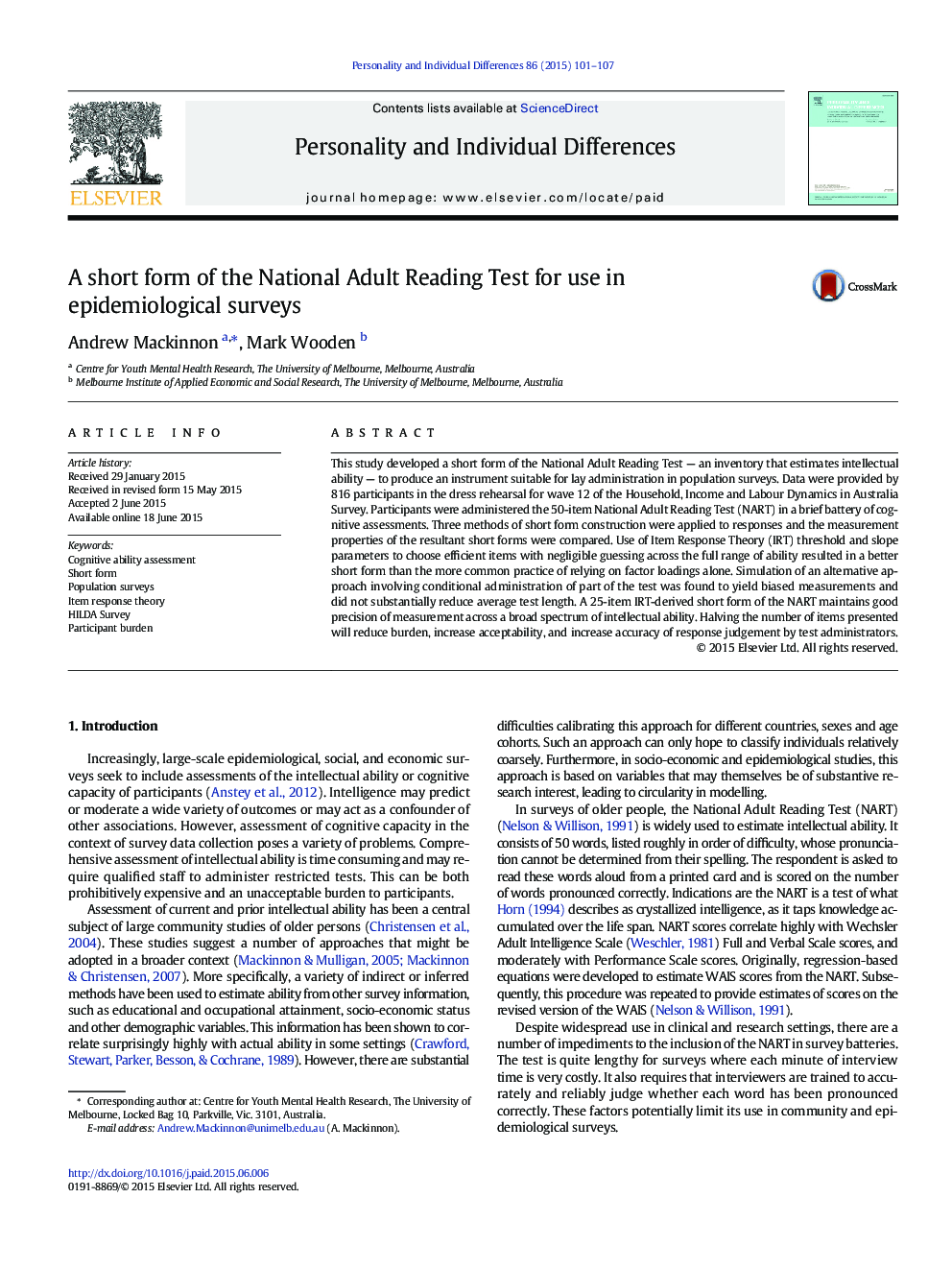| کد مقاله | کد نشریه | سال انتشار | مقاله انگلیسی | نسخه تمام متن |
|---|---|---|---|---|
| 889962 | 1472032 | 2015 | 7 صفحه PDF | دانلود رایگان |
• We refined a test to estimate cognitive ability, making it suitable for use in large social surveys.
• The test — the NART-25 — is brief and imposes little burden on interviewers and participants.
• We show that alternative tests may yield biased or imprecise ability estimates.
This study developed a short form of the National Adult Reading Test — an inventory that estimates intellectual ability — to produce an instrument suitable for lay administration in population surveys. Data were provided by 816 participants in the dress rehearsal for wave 12 of the Household, Income and Labour Dynamics in Australia Survey. Participants were administered the 50-item National Adult Reading Test (NART) in a brief battery of cognitive assessments. Three methods of short form construction were applied to responses and the measurement properties of the resultant short forms were compared. Use of Item Response Theory (IRT) threshold and slope parameters to choose efficient items with negligible guessing across the full range of ability resulted in a better short form than the more common practice of relying on factor loadings alone. Simulation of an alternative approach involving conditional administration of part of the test was found to yield biased measurements and did not substantially reduce average test length. A 25-item IRT-derived short form of the NART maintains good precision of measurement across a broad spectrum of intellectual ability. Halving the number of items presented will reduce burden, increase acceptability, and increase accuracy of response judgement by test administrators.
Journal: Personality and Individual Differences - Volume 86, November 2015, Pages 101–107
